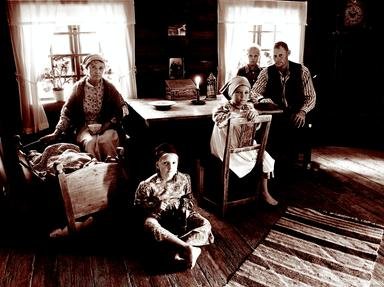Quiz Answer Key and Fun Facts
1. Paiute Indian Wovoka starts a religious movement that spreads in 1890 through many of the Indian tribes of the western U.S. What was the name of this movement that the Indians thought would bring back the spirits of the dead to fight on their behalf?
2. The last major military engagement between the U.S. Army and the Indians was to occur in December 1890 at what location in South Dakota?
3. In 1892 Massachusetts YMCA instructor James Naismith publishes the first rules to what All-American sport that would eventually spread all over the world?
4. The presidential election of 1892 was to be a rehash of the election of 1888 with Democrat Grover Cleveland again facing Republican Benjamin Harrison. James Weaver was a third party candidate in the election who ran for what party that was formed by farmers and labor unions?
5. In 1893 a famous fair was held that included the first Ferris Wheel, the first moving sidewalk, the first phosphorescent lamps, and introduced the world to Juicy Fruit gum, Quaker Oats, Shredded Wheat, and Pabst Blue Ribbon beer. What was this famous fair that attracted visitors from all over the world?
6. In the presidential election of 1896, the Republicans nominated former Ohio Governor William McKinley who handily defeated former Nebraska Congressman Democrat William Jennings Bryan. What was the dominant issue during the presidential election of 1896?
7. In July 1897, the mayor of Seattle, many members of the police force, and the majority of the city's streetcar drivers resigned from their jobs all at once. What event caused them to resign?
8. Do you "Remember the Maine"?
9. What independent republic, that had been trading sugar with the U.S. for decades as well as serving as a provisioning spot for whaling ships, was annexed to the United States by President McKinley in 1898?
10. The Spanish-American War ends in December 1898 with the signing of the Treaty of Paris. As a result of the treaty, the United States gained several Spanish territories and also got a perpetual lease for what military base?
Source: Author
LIBGOV
This quiz was reviewed by FunTrivia editor
bloomsby before going online.
Any errors found in FunTrivia content are routinely corrected through our feedback system.

